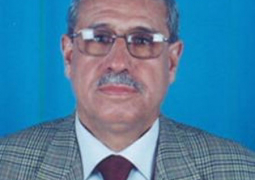A five-day regional workshop on improving performance in the fish trade is currently underway at the Kairaba Beach Hotel in Kololi.
The workshop which kicked-off on Monday draws participants from
The workshop also aimed, among others, to review and evaluate all activities undertaken so far in the participating countries, and provide additional imputs to support the technical and trade database within the present project framework.
In his opening remarks, the Minister of Fisheries and National Assembly Matters, Hon. Lamin Kaba Bajo, described the workshop as timely, noting that "fishery products control systems are facing some constraints in our respective countries."
"In spite of our efforts to address these constraints, technical capacity both in the industry and in the competent authority's inspection services and support laboratories are still inadequate and needs to be augmented," he said.
According to the Fisheries Minister, "the STDF project is intended to complement, to fill gaps, concentrating on capacity building in emerging areas for fish safety namely, risk assessment and traceability and involving industry and support institutions." He added that the important elements of the project are the concentration on linking the competent authorities of the participating countries, the industry and the artisanal operators, thus improving quality at beach level.
Training in safety and quality at beach level and other project activities, he said, would flow on to improvement of domestic health and food safety, as well as food security.
"We are all aware of the important role the fisheries sector played in providing cheap animal protein, employment and foreign exchange earnings in our respective countries. In The Gambia, the fisheries sector will continue to occupy centerstage in government's development agenda, due to the indisputable contribution this sector makes in promoting the health of Gambians through good nutrition, as well as addressing poverty and employment in the population," he stated.
The FAO country representative, Dr. Babagana Ahmadu, said the occasion demonstrated once more the good collaborative relationships between the ministries in-charge of fisheries, with all concerned stakeholders and the FAO for sustainable fisheries livelihoods.
While reiterating his solidarity with the fisher-folks, he noted that the fisheries sector is considered the most dangerous of professions.
Noting that the importance of fisheries needs no emphasis, he said, this is seen in its contribution to self-sufficiency and household food security, employment creation, including other income-generation and retention related activities.
"It is estimated that over 75% of global fish is growing at the expense of other food products. Indeed, it appears that fish consumption is fast growing at the expense of other food products," he said.
He added that fresh fish is now seen as the most important food product with 50% at market, followed by frozen, canned and cured fish. He also stated that this draws attention to the need for quality and safety assurance as major issues of concern in the light of growing world fish production and international trade.
However, Dr. Ahmadu noted that fisheries products and trade are jeorpadised and highly limited by weak quality control compliance requirements and well needed functioning institutional support to address export constraints, amongst other concerns.
"Some of these concerns are related to difficulties regarding interpretation and implementation of the multifarious sanitary and phytosanitary agreements, as well as limited capacities to address key market requirements for value added products," he explained.
Dr. Iddya Karunsagar, Senior Fisheries Officer Products, Trade and Marketing, Fisheries and Aquaculture Policy and Economics Division, Fisheries and Aquaculture Department of the Food and Agriculture Organisation of the United Nations was also among the key speakers at the ceremony.


